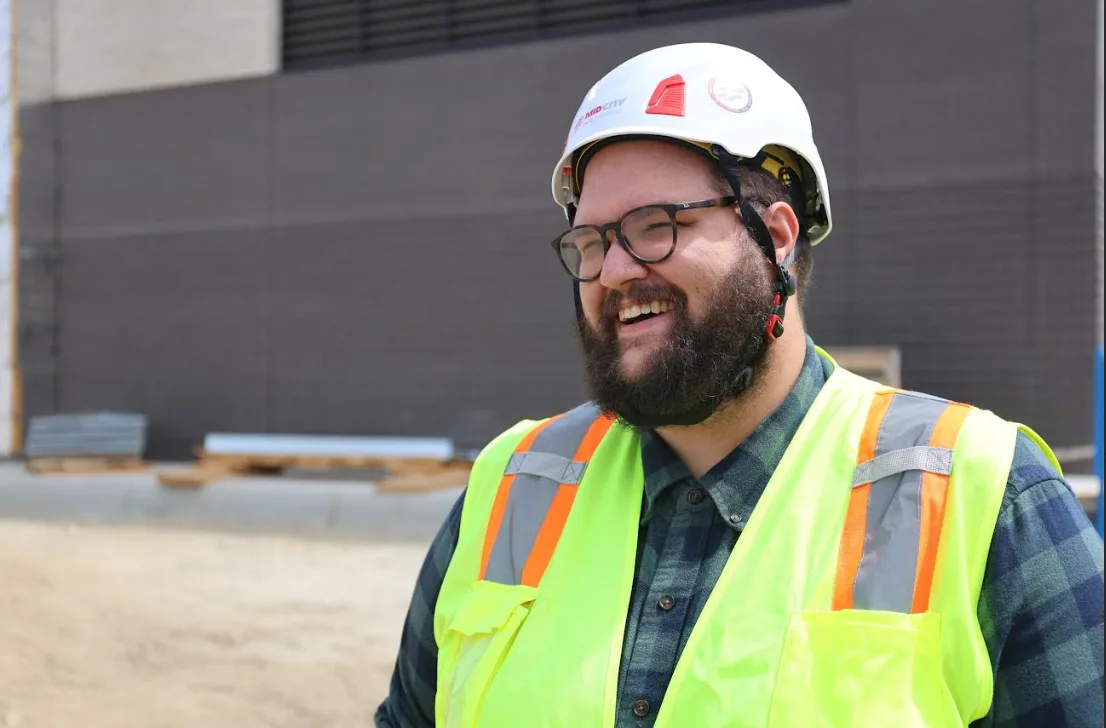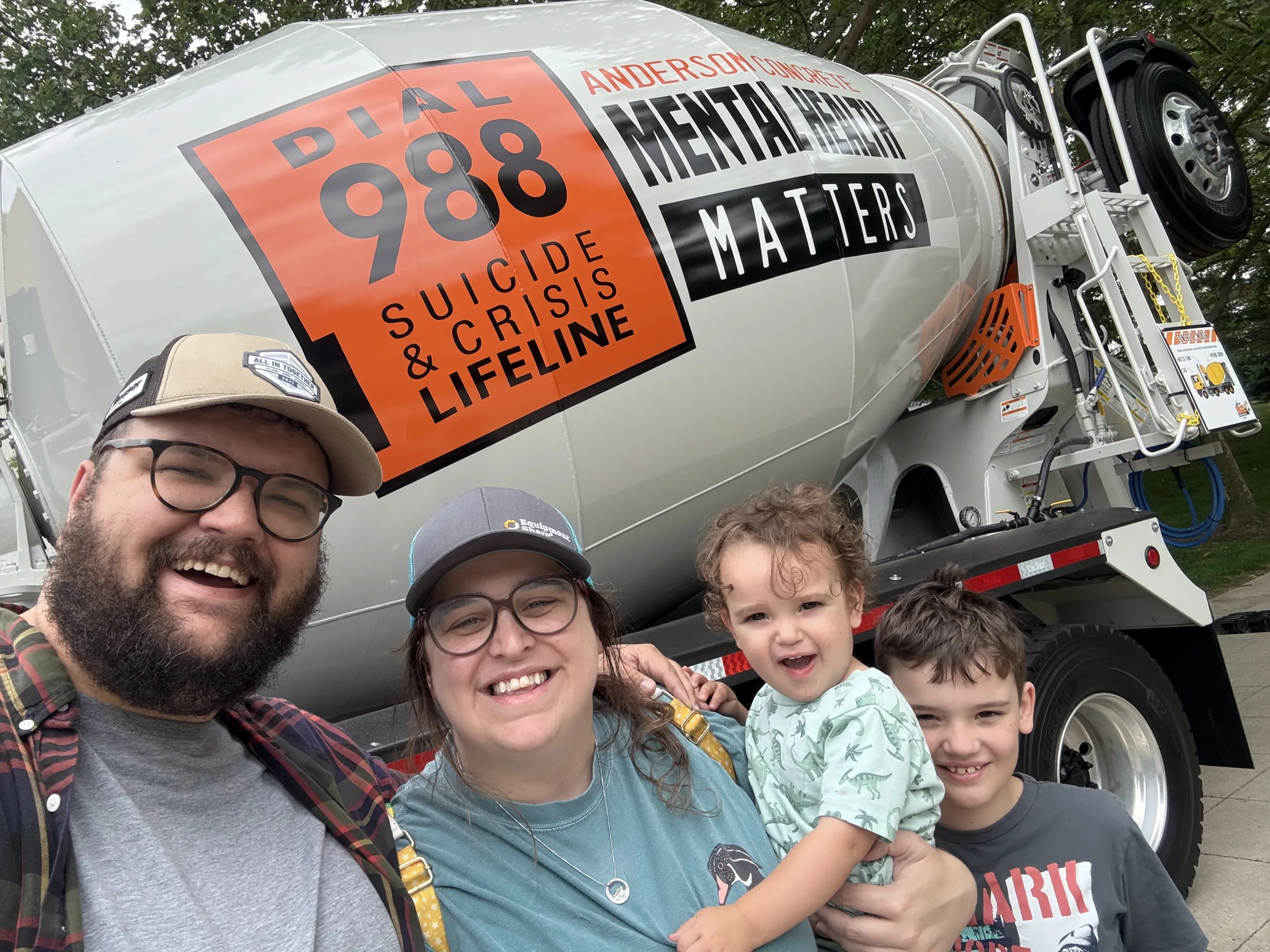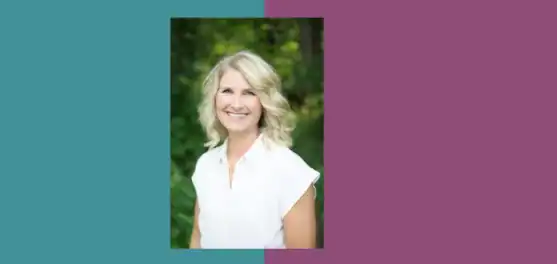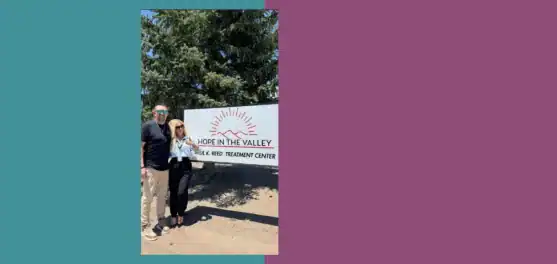“I saw vulnerability as a workaround for stigma—when I shared my story, others started opening up too.”

Paul Lawson never imagined that his personal struggles would one day become the foundation of a business designed to help others. As a former minister, cancer survivor, and person in long-term recovery from alcohol use, Lawson has worn many hats, but the one he wears most proudly today is that of a mental health advocate.
Through his company, Paul Lawson Helps LLC, Lawson equips workplaces, especially in the construction industry, with the tools and cultural shifts needed to create psychologically safe spaces. He’s helping to normalize hard conversations, empower peer support, and show people that asking for help isn’t a sign of weakness. It’s a sign of strength.
From Personal Pain to Public Purpose
Lawson’s recovery journey began with a conversation that many might find familiar: a loved one expressing concern. His wife’s worries about his drinking prompted a pivotal moment of self-reflection.
“Making the call to the Employee Assistance Program (EAP) and finding a therapist was a big moment for me,” Lawson shared. “I had been through marriage counseling before, but I had never made appointments for myself to process my background as a cancer survivor or to work through my alcohol misuse. Following through on that first appointment was huge.”
What began as a personal milestone became a professional turning point. As he progressed in his own healing, Lawson found himself wanting to help others do the same, particularly in environments where stigma was still deeply entrenched.
“Whenever I only spoke about mental health, substance misuse, or suicide in abstract terms, I could feel that people weren’t fully engaging,” he said. “But when I started modeling vulnerability, talking about my own challenges with alcohol and mental health, that’s when I saw real connection. Vulnerability became a workaround for stigma.”
Leading Change from the Inside
Lawson was working at Mid-City Electric, a commercial electrical contractor near Columbus, Ohio, when he saw an opportunity to build something new—a workplace mental health advocate program rooted in peer support, ongoing education, and real talk. The program he developed became a model for the construction industry and beyond.
Key components of the Mid-City Advocates Team Program included:
- Consistent engagement: Bi-monthly in-person meetings and active online communication created momentum and a sense of community.
- Relatable resources: Mental health tools and resources were shared in plain, accessible language. No clinical jargon.
- Skill-building: Advocates were trained not only on what resources existed, but how to model and coach others in using them.
- Peer empowerment: Employees at all levels were encouraged to support one another and create a culture of care.
“We created a rhythm, a movement, where people felt supported no matter where they were in the company,” Lawson said. “That’s what made it work. It wasn’t a one-time training. It was a living, breathing program.”
Blueprints for Wellbeing: A City-Wide Initiative
The success at Mid-City sparked something bigger. In January 2024, Lawson helped launch Blueprints for Wellbeing, a quarterly initiative through the Builders Exchange of Central Ohio. Its mission? To create a growing community of workers in the Columbus construction industry who are actively building a culture of care.
With participation from over 70 companies and 16 wellbeing providers, the initiative is already connecting dots that previously felt isolated—contractors meeting local and national mental health organizations like Alcohol, Drug & Mental Health (ADAMH) of Franklin County, Ohio Suicide Prevention Foundation, and ManTherapy.
“We’re seeing relationships form between construction firms and mental health providers that never would have happened otherwise,” Lawson said. “Blueprints is more than a meeting. It’s a platform for collaboration.”
The goal is simple but powerful: to normalize both help-seeking and help-giving behaviors within industries that often pride themselves on stoicism.
Everyday Helpers, Extraordinary Impact
Lawson’s advocacy work isn’t limited to workplaces. He’s also the host of The Helpers Podcast, a series dedicated to elevating the voices of what he calls “Helpers,” people who quietly make a difference in their communities, families, and industries without seeking credit. Lawson invited his friend Cal Beyer of SAFE Project to present at a Blueprints meeting in May 2024 and as a guest on his podcast. Beyer marvels but is not surprised at how quickly Lawson’s influence grew, exclaiming the first time I spoke with Paul I could tell he was going to be a game-changer.
“Helpers are the unsung heroes,” he said. “They model vulnerability. They hold others up. Whether their corner is in construction or education or something else, they share a common thread—empowering those around them.”
Lawson believes that true cultural change comes from the ground up, not from celebrity endorsements or government mandates, but from everyday people who decide to use their voices.
“When movements happen, it’s usually because someone regular took a risk, spoke up, and inspired others to do the same. That’s what I wanted the podcast to reflect.”
A Family Grounded in Emotional Intelligence
At home, Lawson and his spouse are raising two sons with the same intentionality and compassion that defines his public work. Their oldest son is just eight years old, but the conversation around emotional well-being started years ago.
“We’ve been teaching him emotional intelligence for a while now,” Lawson said. “We want both of our kids to know how to name their feelings, ask for help, and recognize emotions in others. But the most important part is that we model it ourselves.”

“It’s not about perfection” he adds, “it’s about being honest, consistent, and available.”
From Advocate to Entrepreneur
As demand for his expertise grew, Lawson faced a crossroads. More and more companies began reaching out to him, asking for help developing their own mental health programs. At first, he used PTO to support these efforts, but eventually, he, and his employer, realized something had to change.
“Mid-City’s leadership was incredibly supportive. We worked together on a nine-month transition plan so I could leave the company to launch Paul Lawson Helps LLC. And the coolest part? They became my very first client.”
Today, Lawson’s business provides workshops, consultation, training, and ongoing support for companies across Ohio and beyond. His specialty? Helping companies move from from awareness to real culture change.
Advocates Are the Bridge
One of the most powerful realizations Lawson has come to in his journey is that you don’t need a clinical degree to make a difference. Some of the most important work happens before a person ever reaches a therapist or treatment center.
“For a long time, I felt like I needed to apologize for being an advocate and not a clinician,” he admitted. “But then I realized, advocates are the bridge. We’re often the first touchpoint, the ones who help people bypass stigma and take that first step.”
Rather than going back to school to earn more credentials, Lawson doubled down on his unique role: empowering others to step into advocacy themselves.
“When we all function in our lanes—clinicians, advocates, HR leaders, peers—we can create a global team that saves lives. That’s the dream.”
Share Your Story
This epidemic has given us one common experience: we have all become experts in our own way. At SAFE Project, we believe that we strengthen one another by sharing our stories. Whether you are in recovery, lost a loved one, or are making a difference in your community, you can help others on this journey. We’d like to hear from you.


